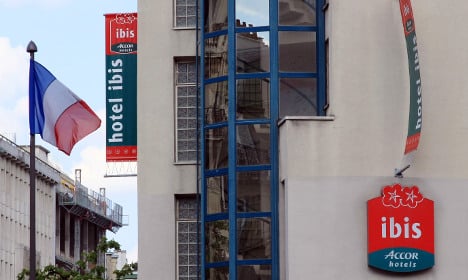AccorHotels has announced it would plant vegetable gardens at many of its hotels and aims to cut food waste by 30
percent as it improves the environmental sustainability of its operations.
Chief executive Sebastien Bazin said the group that includes the Pullman, Sofitel, Novotel, Mercure and Ibis chains intends to “reduce food waste by 30 percent, in particular by sourcing food locally”.
AccorHotels, which generates 25 to 30 percent of its revenue by serving 150 million meals and 130 million pastries per year, first plans to determine just how much food it is wasting.
Its restaurants will be required to weigh and record food tossed out in order to best determine how to cut waste.
With up to one third of food produced being wasted, according to estimates by the UN's Food and Agricultural Organization, there is ample room for businesses to save money while also helping reduce hunger and greenhouse gas emissions associated with farming and transport.
Amir Nahai, who heads of up the French group's food operations, said that changes to menus were also coming, as in some hotels they can offer up to 40 main courses.
“In the future we're going to have menus with 10, 15 or 20 main courses, with more local products,” he told journalists.
Local could be very close, as the group intends to plant vegetable gardens in many of its 3,900 hotels.
“We are also going to support urban agriculture with the creation of 1,000 vegetable gardens in our hotels by 2020,” said Nahai.
AccorHotels also aims to improve the energy efficiency in its buildings with the ultimate target of making them carbon neutral.
In its previous five-year environmental plan, AccorHotels said it cut water consumption by nearly nine percent, energy consumption by 5.3 percent and carbon emissions by 6.2 percent.



 Please whitelist us to continue reading.
Please whitelist us to continue reading.
Member comments